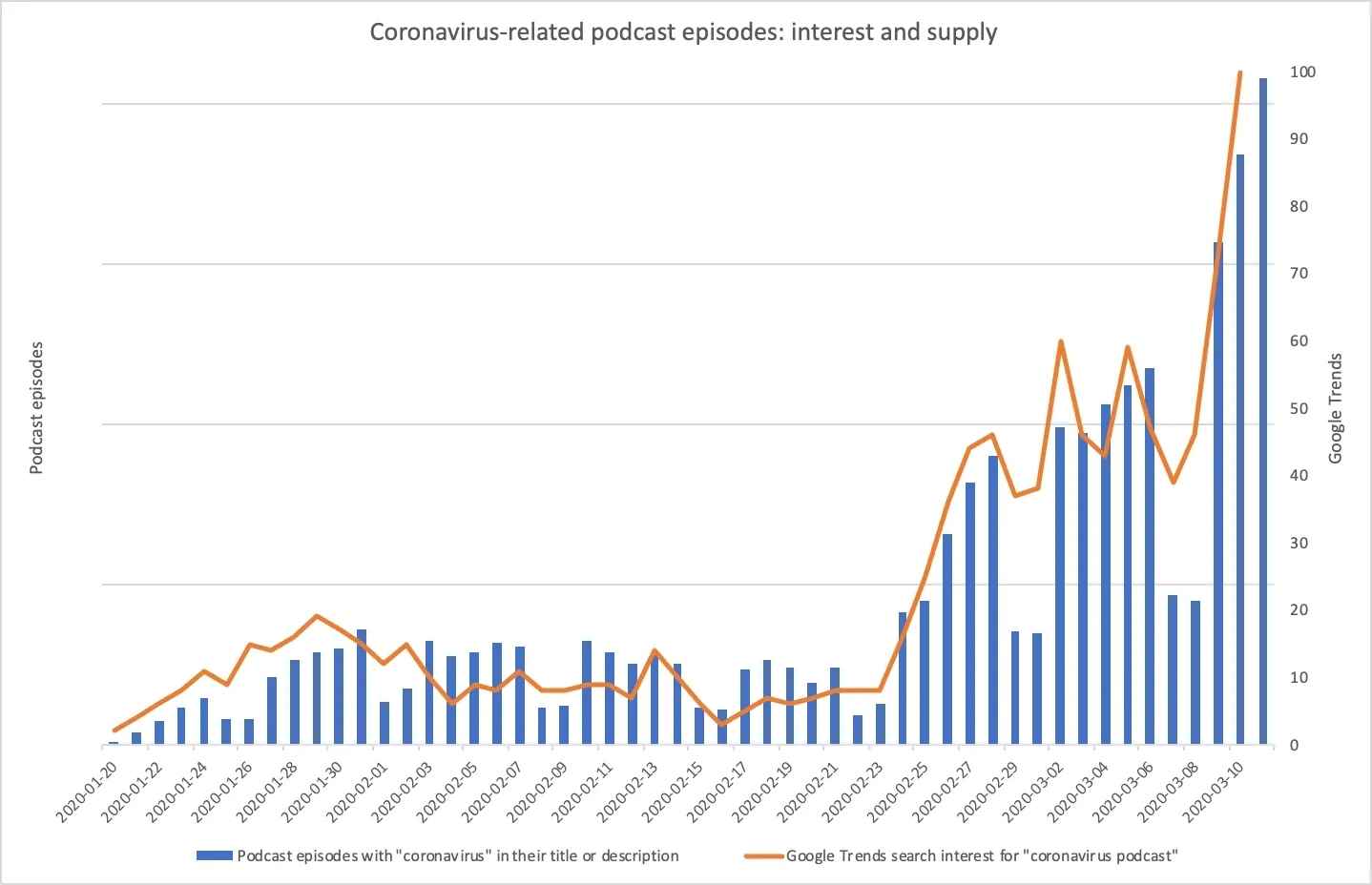Coronavirus, podcasts, and relevance
Earlier this week, Arielle Nissenblatt remarked on the large number of Coronavirus-related podcast episodes:
Indeed, the number of episodes has grown quickly, as has their popularity. As I write this, the top-ranked episode on the Apple’s US charts is The Daily’s Why the U.S. Wasn’t Ready for the Coronavirus.
Beyond individual episodes, several new Coronavirus-focused series have emerged, like CNN’s Coronavirus: Fact vs Fiction and Ride Home Media’s Coronavirus Daily Briefing. Both are currently charting in Apple Podcasts.
Supply vs. Demand
Google Trends shows us the demand for podcasts about Coronavirus, and the sharp rise in Coronavirus-related episodes shows us podcasters’ response to that demand. Here they are, displayed alongside each other:

As of March 12, 2020, I counted more than 22,000 episodes with the word “coronavirus” in their title or description. There are probably more. The absolute numbers aren’t especially important to me. It’s the trend over time I find most interesting. Both sides — demand and supply — seem to move in parallel.
This makes a lot of sense. In times of uncertainty, the desire for credible and timely information grows.
The value of relevance
So what’s the lesson for podcasters who aren’t making Coronavirus-related shows? It’s a simple principle: relevance.
Almost universally, audiences want content that’s relevant to their lives. Content that hits them where they live.
A show like Coronavirus: Fact vs Fiction promises to dispel myths and help listeners “make sense of the headlines.” That’s highly relevant to my day-to-day life.
A show like Coronavirus Daily Briefing promises “15 minutes and you’re up to date.” Again, highly relevant to my day-to-day life.
This applies to non-news shows in equal measure. Regardless of your podcast’s topic, format, duration, or release cadence, relevance should be at your show’s core.
As Steve wrote last year:
Have empathy for your audience. Put yourself in their ears. Why are they listening to this podcast? How does this show help them or improve their lives? Think like a listener.
How do you make your show relevant to your audience?
Sign up for the Pacific Content Newsletter: audio strategy, analysis, and insight in your inbox. Once a week.
